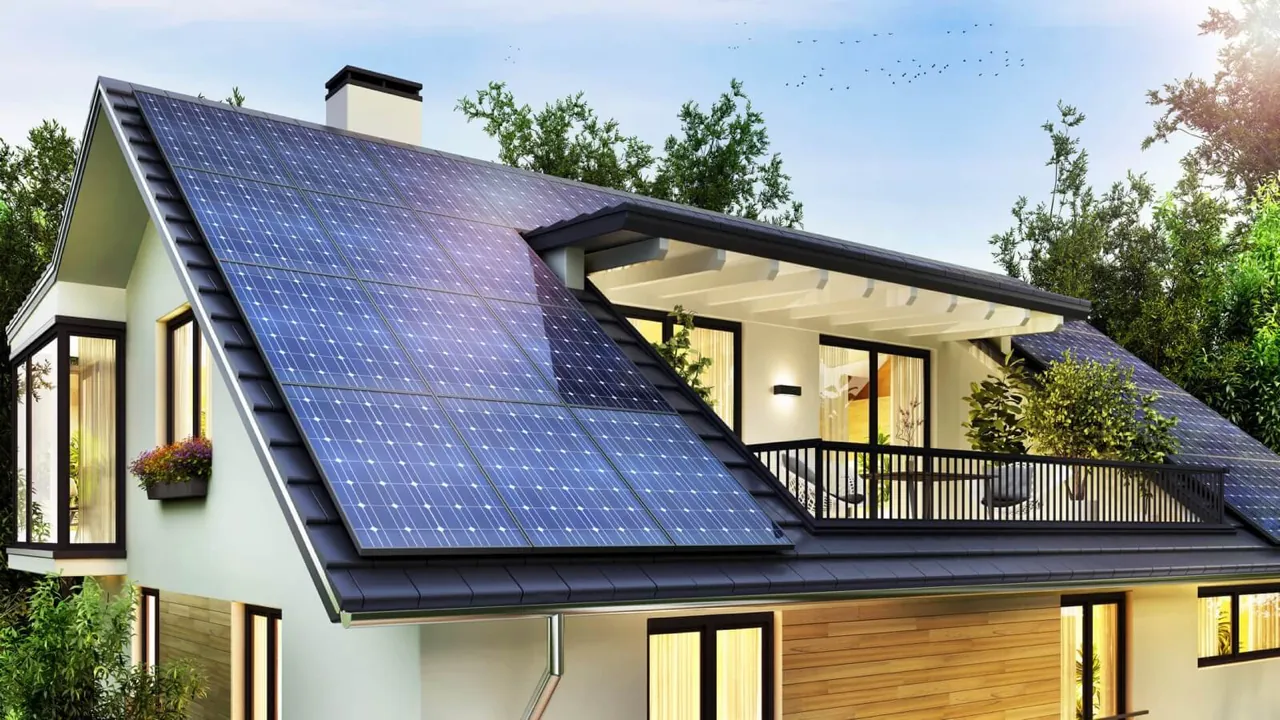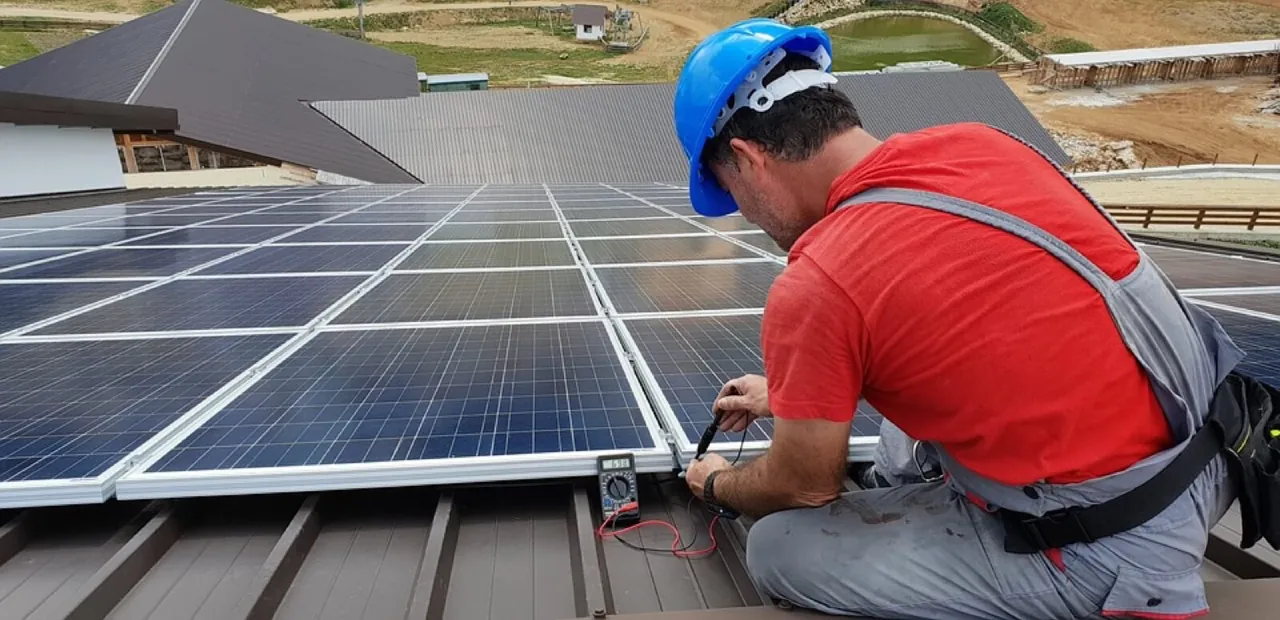

With the cost of electricity rising, more and more people are looking into installing solar panels for their homes. If you're considering going solar, you're probably wondering how much this will cost. The answer is: it depends on a number of factors. Some people think that they need to spend tens of thousands of dollars—and even more!—to install solar panels on their homes. However, that's not always the case. In fact, there are many homeowners using solar power at home who have installed them at little or no cost (or after paying off some loans).
As the price of solar panels has dropped, more and more homeowners in Florida are installing them. In fact, a recent study found that nearly 8% of Americans have installed solar panels on their homes. This is great news for the environment and your wallet!
As solar panel costs have plummeted over time, so too has the cost of installation. In 2010 alone there was an average cost reduction of 53%. It's expected that this trend will continue upward as we enter 2020 with another 50% drop in cost.
If you're considering going solar, chances are that the first thing on your mind is how much it will cost to install the panels. And with the amount of information out there about what it costs to go solar, it's easy to get lost in a sea of numbers.
Luckily for us, we've done some research and have put together this guide so that you can figure out exactly how much solar panels cost in Florida.

The amount you pay for solar panels depends on a number of factors, including:
The size of your home and how much energy it uses. The bigger the house, the more expensive it is to install solar panels. Larger homes also tend to consume more electricity. If you have an older home that uses a lot of energy, this will also drive up costs because those houses require more labor and materials. The type of panels you choose to have installed. Solar panel systems come in different sizes and capabilities; some are designed for specific applications or are intended for commercial use rather than homeownership.
Where you live in Florida—and if there are any additional incentives available near where you live that could reduce what it would cost to install solar panels on your property (see below).
Solar panel prices are higher in Florida than in other states. The reason for this is that solar energy equipment and labor tend to be more expensive in Florida than other parts of the country, as well as there being more regulations and permits required by local government.
If your house is located on an off-grid location, or it doesn't have access to public utilities (water, sewer), or if it has a steep roof angle or unusual building layout which makes installation difficult, you may need to hire an electrician who specializes in off-grid installations.
There are three main types: monocrystalline, polycrystalline, and thin film. Monocrystalline panels are the most efficient but more expensive than other types. Polycrystalline panels are more affordable but less efficient than monocrystalline and thin film. Thin film panels are durable and last longer than other types of solar panels, which means they'll save you money on repair bills over time.
There's another important consideration when choosing a solar panel: its shape and size. Most solar systems use 60-cell or 72-cell flat frame modules—that is, the crystalline silicon material that makes up a photovoltaic cell is cut into four pieces instead of being rolled up in one big piece like glass would be for windows at home or office buildings downtown (though there can be exceptions!).
If you live in a two-bedroom, one bathroom house with a 600 square foot living space, you probably aren’t going to be using as much electricity as someone who lives in a five-bedroom, three bathroom house with 1,500 square feet of living space. You can always install solar panels that produce more energy than your home needs and sell back the excess energy to the utility company (this is called net metering), but most people don't do this because it's not cost effective for them.
The good news is that some companies offer reduced rates for smaller homes because they know that smaller homes use less electricity and therefore have fewer installation costs for them to recoup their investment on installing solar panels at your property.
For example, a house that’s larger than average may need more solar panels. That’s because larger homes require more power to run their appliances, lighting and other devices. The same goes for homes with a large number of windows, which let in more sunlight—and thus produce more heat.
Also take into account the energy efficiency of your home’s insulation and windows. If you have older or poorly maintained insulation or windows that don’t seal well, these will increase the amount of energy you use each month by letting cold air seep in during winter months or hot air build-up during summer ones (both of which can lead to higher utility bills).
For a free estimate, an installer will come out to your home and do an energy audit. This involves taking a look at your current electricity bills and electric usage, as well as determining what type of solar panels would be best for your needs. An energy audit does not have to cost you anything, but some companies may charge for this service if their profit margins are tight or if their labor costs are high.

The average cost of solar panels in Florida is $14,000 to $20,000. The cost depends on your location, the size of the home and whether you add batteries. Batteries allow homeowners to store extra energy during the day so they can use that electricity at night.
If you live in a municipality that offers incentives or rebates, they will offset some or all of your upfront costs. In these cases, it might only take five years for savings on your electric bills to outweigh the initial investment costs (this depends on how much sun shines in your area).
Even if there aren't any incentives available near where you live now, it's still worth looking into investing in solar panels because over time this investment will pay off handsomely by lowering utility bills substantially and maybe even helping pay off other debts!
In conclusion, I want to say that solar can be a great investment for homeowners in Florida. You can save money on your electric bill, and you'll also be doing something good for the environment by reducing your carbon footprint. If you're considering going solar, now is a great time because there are many incentives available from both state and local governments. You can also take advantage of tax credits and rebates from companies like SolarCity or Sunrun that will help offset some costs associated with installation. Just make sure before starting any project that you do an energy audit first!